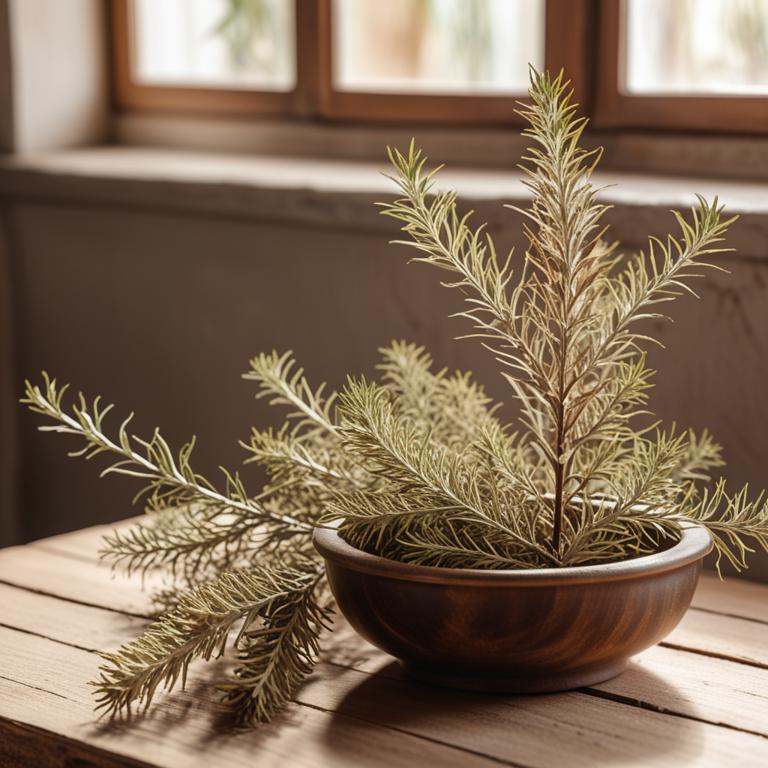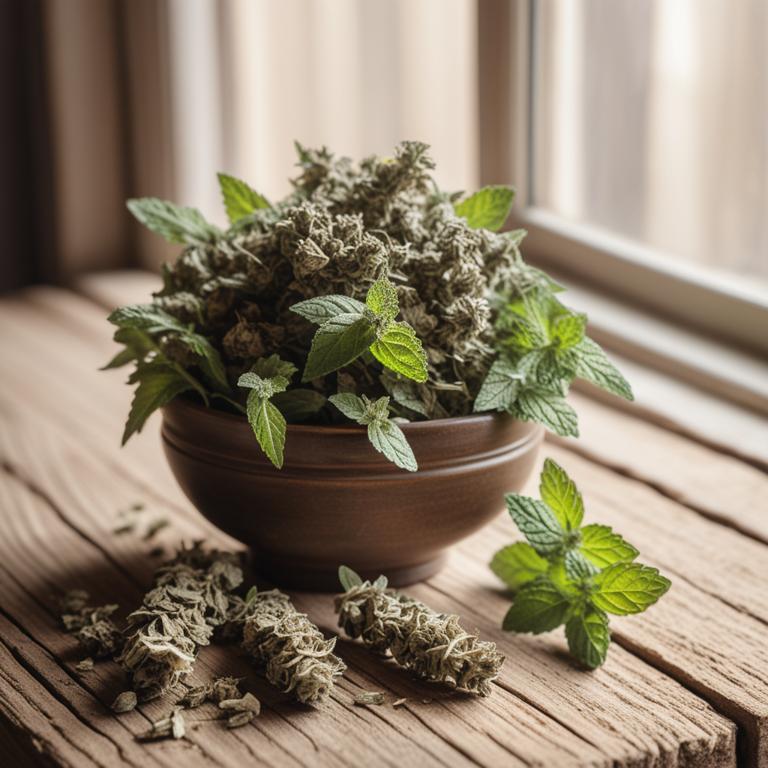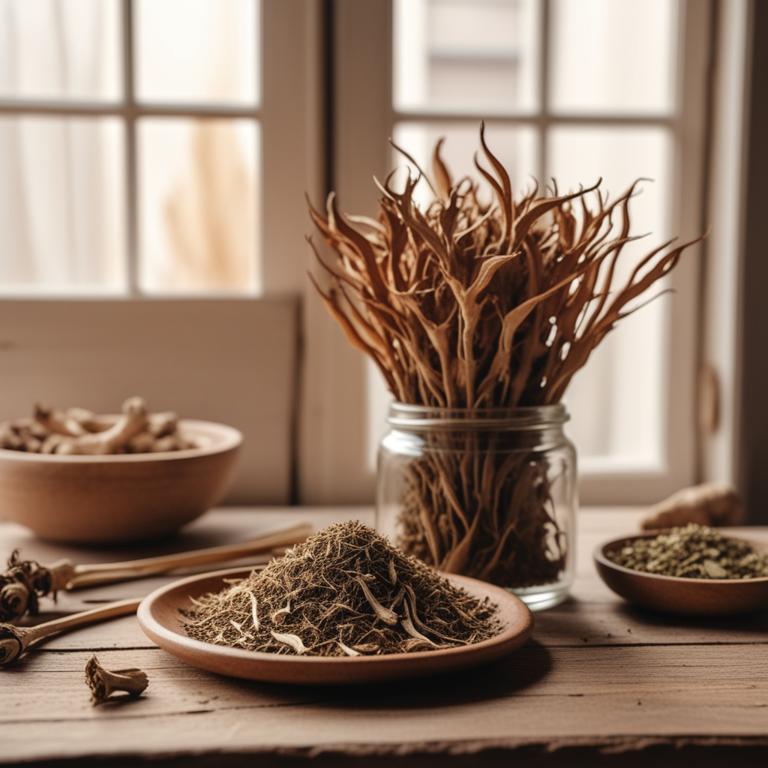Updated: Dec 1, 2024
Understanding Coughing Fits: Causes, Medicinal Herbs, and Herbal Preparations for Relief
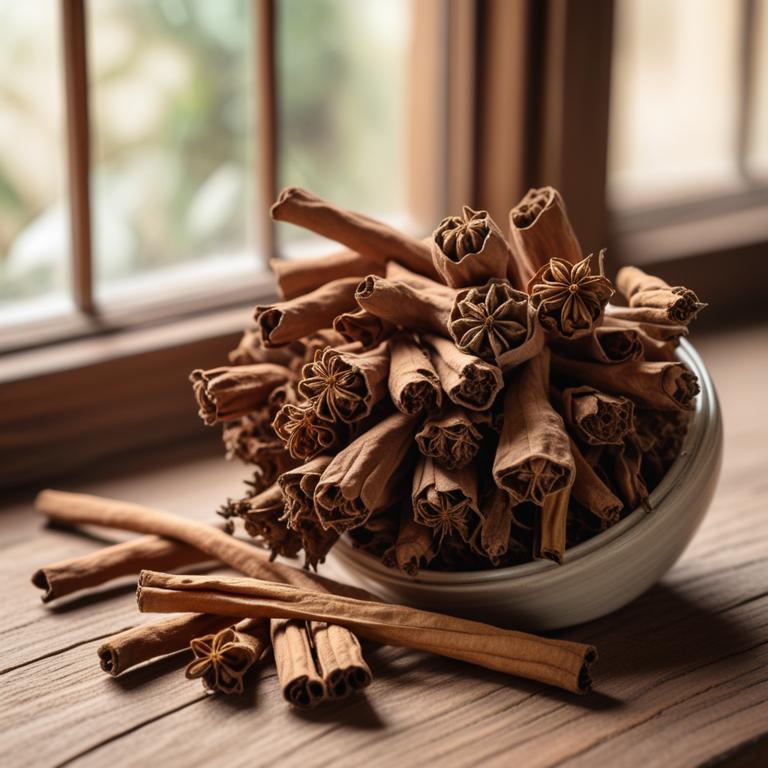
Coughing fits, also known as persistent coughing, can disrupt your life and make it hard to breathe, sleep, and even talk.
It can be a symptom of a underlying condition like asthma, allergies, or a viral infection. The causes of coughing fits can be many, including smoke, dust, and pollution in the air. Even stress and anxiety can trigger a coughing fit. For centuries, people have turned to herbal remedies to soothe their coughing fits.
Herbs like thyme, ginger, and licorice root have anti-inflammatory properties that can help calm the airways and reduce inflammation. Other herbs like slippery elm and marshmallow root can coat and protect the throat, making it less irritated. When it comes to preparing these herbs, teas are a popular choice. You can make a thyme tea by steeping fresh thyme leaves in hot water, or try a ginger tea by slicing a piece of fresh ginger and steeping it in hot water.
Some people also use cough drops or lozenges made from licorice root or slippery elm to soothe their cough.
Table of Contents
- What are the underlying causes of coughing fits?
- What benefits do herbs provide in managing coughing fits?
- Which medicinal herbs are effective in soothing coughing fits?
- What are the most frequently employed herbal remedies for coughing fits?
- Can you tell me which herbs to avoid if you have recurring coughing fits?
- FAQ
What are the underlying causes of coughing fits?
The main causes of coughing fits are several and varied.
Acid Reflux, for example, can trigger coughing fits because stomach acid flows back up into the esophagus, irritating the lining and causing a coughing response to try and clear the acid out. Allergies are another common cause, as when we inhale allergens like pollen, dust, or pet dander, our body reacts by releasing histamine, which can lead to coughing. Asthma is also a major contributor, as it causes inflammation and constriction in the airways, making it harder to breathe and triggering coughing fits.
Finally, Bronchitis, an inflammation of the bronchial tubes, can also cause coughing fits as the body tries to clear out the irritants and excess mucus that are causing the inflammation.
What benefits do herbs provide in managing coughing fits?
Using herbs for coughing fits can be very helpful.
One of the main benefits is that they can provide quick relief from a cough. These herbs often have natural ingredients that can soothe the throat and calm the cough. They can also help to loosen mucus, making it easier to cough up and feel better.
This can be especially helpful for people with chronic coughing, like those with asthma or bronchitis. Herbs can also help to reduce inflammation in the throat and airways, which can cause a cough. Additionally, many herbs are naturally antibacterial, which can help to prevent infections that can lead to coughing. Some herbs can even help to calm the body and promote a good night's sleep, which is often disrupted by a cough.
This can help to break the cycle of coughing and improve overall well-being.
Which medicinal herbs are effective in soothing coughing fits?

Herbs have been used for centuries to help soothe and calm coughs.
Echinacea purpurea is a popular herb that helps boost our immune system, making it easier to fight off infections that can cause coughs. Thymus vulgaris, or thyme, is another great option as it has antibacterial properties that can help reduce inflammation in the throat and airways. Glycyrrhiza glabra, or licorice root, has anti-inflammatory properties that can help soothe a sore throat and calm a cough.
Zingiber officinale, or ginger, has natural anti-inflammatory properties that can help reduce swelling in the throat and help ease congestion. Mentha x piperita, or peppermint, can help ease congestion and open up airways, making it easier to breathe. When we combine these herbs, we can create a powerful blend that can help soothe and calm even the most stubborn coughs.
By using these herbs, we can help our bodies fight off infections and inflammation, and find relief from coughing fits.
What are the most frequently employed herbal remedies for coughing fits?

When you're hit with a nasty cough, herbal preparations can be a big help.
Let's start with tea - it's a classic for a reason. You can make tea by steeping dried herbs like ginger or peppermint in hot water. The hot water releases the good stuff from the herbs, which then soothes your throat and helps calm the cough. Decoctions work in a similar way, but they involve boiling the herbs in water to make a stronger liquid. This is good for thicker herbs like roots or bark, which take longer to release their goodness.
Infusions are another type of tea, but they use cold water instead of hot. This is perfect for delicate herbs like chamomile or lemon balm, which can get damaged if heated. Tinctures, on the other hand, are liquid extracts that you take in small amounts. They're made by soaking herbs in a solvent like vodka or glycerin, which then gets absorbed by your body. Capsules are similar to tinctures, but they contain dried and powdered herbs instead.
This is convenient if you don't like taking liquid medicine, or if you're on the go.
Additional Resources:
Can you tell me which herbs to avoid if you have recurring coughing fits?
If you're experiencing frequent coughing fits, it's essential to be cautious when using certain herbs.
Cinchona officinalis, also known as cinchona, contains quinine, a compound that can exacerbate coughing. This is because quinine can irritate your throat and airways, making coughs worse. Hydrastis canadensis, or goldenseal, contains berberine, which can also worsen coughs. Berberine can dry out your throat, making it more sensitive and increasing the likelihood of coughing.
Verbascum thapsus, or mullein, has a soothing effect on the respiratory system, but in large quantities, it can cause a buildup of sputum, leading to more frequent and severe coughing fits. Sanguinaria canadensis, or bloodroot, contains a compound that can stimulate the nervous system and worsen coughs. Its overuse can lead to an increase in mucus production, which can irritate your airways and trigger more coughing. Piper nigrum, or black pepper, contains piperine, a compound that can irritate your throat and airways, making coughs worse.
When taken in large amounts, black pepper can cause a burning sensation in your chest and throat, leading to more intense coughing fits.
FAQ
Are there any specific herbs that can prevent coughing fits?
Some herbs like thyme and licorice root have been traditionally used to soothe a sore throat and calm coughs.
Thyme contains compounds that may help reduce inflammation and kill bacteria that cause infections.
Licorice root has anti-inflammatory properties that can help ease throat irritation and coughing fits.
Is it safe to use herbal remedies for coughing fits during pregnancy?
It's best to be cautious when using herbal remedies during pregnancy.
Some herbs, like ginger and thyme, are generally considered safe and can help soothe a cough. However, others like eucalyptus and peppermint can be strong and might not be suitable for pregnant women.
Always read labels carefully and follow the instructions.
Are there any herbs that can reduce the frequency of coughing fits?
Some herbs, like thyme and licorice root, have been traditionally used to help soothe a cough.
Thyme's antibacterial properties can reduce inflammation in the throat, while licorice root may calm the airways.
These herbs can be consumed as tea or added to warm water to help ease a persistent cough.
Can i combine different herbal remedies for coughing fits?
You can combine different herbal remedies for coughing fits, but be cautious.
Mixing herbs can affect how they work together. For example, combining honey with thyme may soothe a cough, but adding eucalyptus could make it harder to breathe.
Start with small amounts of each herb to see what works best for you.
Related Articles
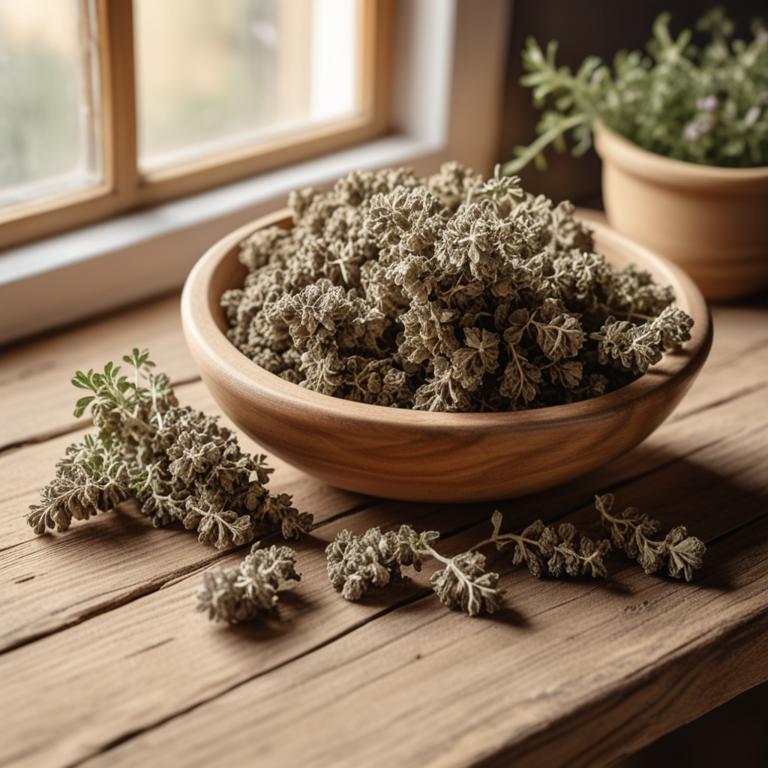
Phlegm: Causes, Herbs, and Medicinal Preparations for Relief
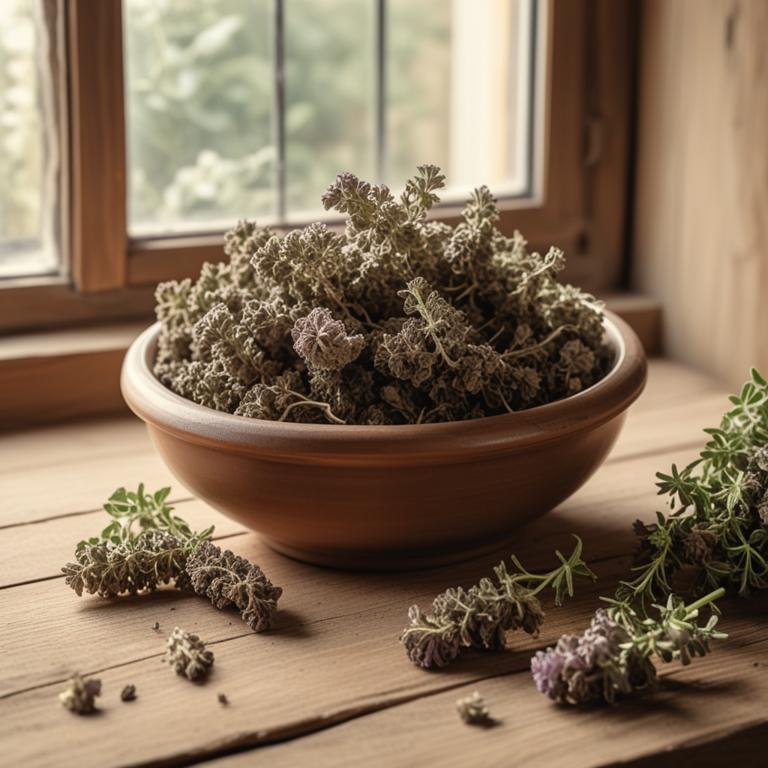
Mucus in Throat - Understanding the Causes and Herbal Cures
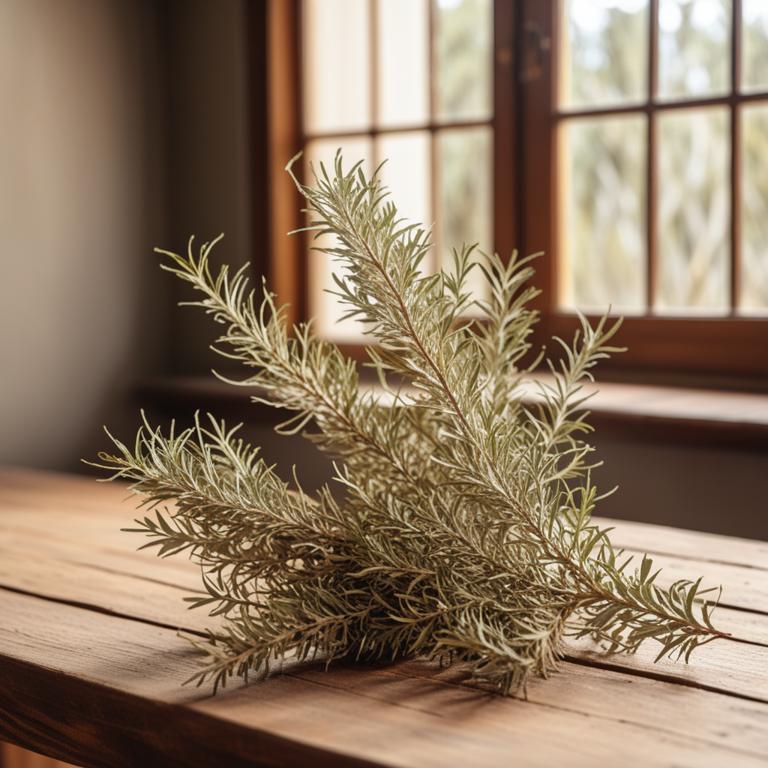
Understanding and Managing Fungal Infection with Medicinal Herbs and Preparations
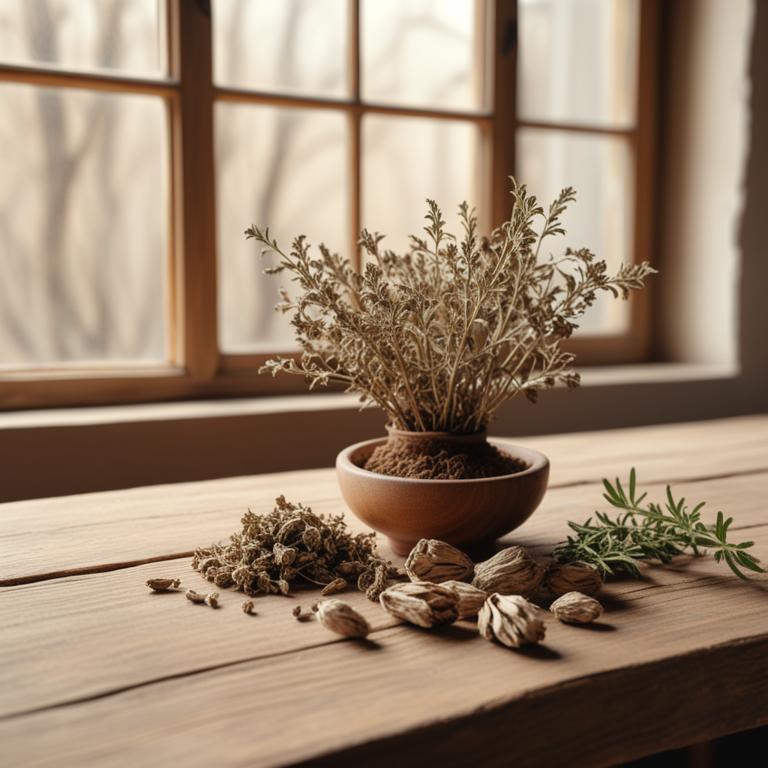
Sore Throat Causes, Herbal Cures, and Medicinal Plant Remedies
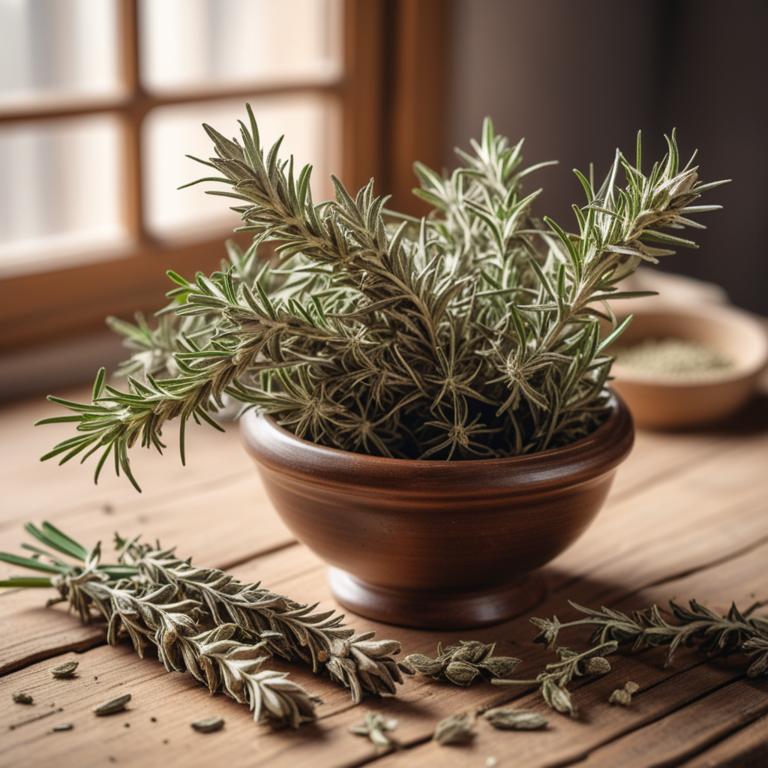
Understanding Sinusitis: Causes, Herbal Remedies, and Natural Treatments
